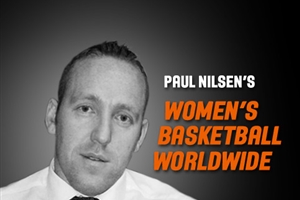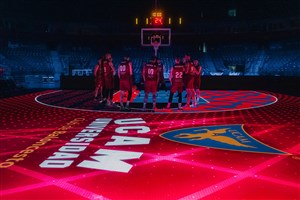
Canada wants the world
Charlotte (Steve Goldberg's Wheel World) - They own one of the greatest runs in competitive basketball. John Wooden's UCLA teams won 10 NCAA titles in 12 seasons. The Boston Celtics won 11 NBA titles in 13 years. Right up there with them, the Canadian women's national wheelchair basketball team.
Here's a fun fact: From 1990 in St Etienne, France to 2006 in Amsterdam, Netherlands, Canada's women won their last game and medaled in every World Championship and Paralympic tournament. Nine straight majors: seven gold, two bronze. It's always good to finish on a win. They were closers, eh.
Beginning with the 1992 Barcelona Paralympic Games, the women of the Maple Leaf won six top trophies - 3 Paralympic, 3 World - in a row until the Americans, who were silver medal bridesmaids for each of Canada's World Championship wins, dethroned them at the 2004 games in Athens.
The Canada women are the only wheelchair basketball team to win three Paralympic Gold Medals in a row (1992, 1996, and 2000) and four World Championships in a row (1994, 1998, 2002, and 2006).
It was and is an unprecedented dominance in the sport and one unlikely ever to be matched as the game continues to grow.
But coming into the 2014 IWBF Women's World Wheelchair Basketball Tournament which begins today, the Canadian women have missed two of the last three major podiums and are eager to get back, especially in front of their home fans for the first time.
There have been six women's championships prior to this and Canada have medaled in every one of them. The USA won the first one, held in France in 1990. Then came the rule of the Canadian empire which stood for the next 16 years with four straight titles until the Americans reclaimed it at the last one in Birmingham, England in 2010.
The primary venue for the tournament is Toronto's Mattamy Athletic Centre, which will also be the venue when the city hosts the 2015 Pan American and Parapan American Games.
It will be the largest women's world championship in history featuring 12 countries and, for the first time in 20 years, the competition will be held separately from the men's who will meet in Korea next month (3-15 July).
Perhaps more excited is the executive director of Wheelchair Basketball Canada Wendy Gittens who has been at the helm since 1999. Talking to her last week, she admitted that they were ready for it to finally get underway.
"We have a vision of being the world leader in wheelchair basketball and in everything we do and in every decision we make, it goes back to that vision of being a world leader," she said.
That leadership she refers to comes both on and off the court. Her immediate big picture objectives for the tournament are to use the event to build awareness and promote the sport and the women's game specifically, while striving to set the bar on how a world championship event should be hosted.
The excitement of hosting the women's championship is tempered though by knowing that the men's team, the current Paralympic champions, will miss the world championship for the first time. After six straight world medals (one gold, one silver and four bronze), they slipped to 7th in 2010.
"That's natural in sports," says Gittens. "You have a core group that's been there a long time and they're very experienced, the veterans. Our job is to ensure that when they leave we have people to fill those spots and are ready to go. Sometimes there is a gap."
That's easier said than done when you're talking about replacing the level of Patrick Anderson, David Eng, Dave Durepos, Chantal Benoit, Tracey Ferguson, Sabrina Pettinicchi, and Jennifer Krempien among others.
Success is never guaranteed, even if the pieces are there. Ask the Miami Heat. Certainly, the recent failure of Spain and England at the FIFA World Cup in Brazil proves just that.
That's why we have dictums in sport such as "It's not how many times you get knocked down that matter but how many times you get up."
Gittens and Wheelchair Basketball Canada have a plan for that. She says the organization "will continue to grow, become more sophisticated in terms of our program development and system development, (create) more alignment with our provincial and club organizations, not just in our high performance national team level but straight down to and through the club system and grassroots development. That's the direction we're moving in.
"In order to maintain the favorable positions that we've had in the past with all our success, that's what we need to do. We've developed a long term athlete development program which will guide that."
Former national team coach Mike Frogley is now running an academy program designed to identify and train the next generation of national teamers.
Gittens acknowledges that "it's a huge undertaking but it's also probably the single most important thing that we do moving forward for our national team programs. There's nothing like it elsewhere in the world.
"A team not qualifying for a world championship," she notes adamantly. "That will never happen again."
But that's for tomorrow as today the home team opens against Japan in a sold-out arena with the support of a nation behind them.
Steve Goldberg
FIBA
FIBA's columnists write on a wide range of topics relating to basketball that are of interest to them. The opinions they express are their own and in no way reflect those of FIBA.
FIBA takes no responsibility and gives no guarantees, warranties or representations, implied or otherwise, for the content or accuracy of the content and opinion expressed in the above article.
To help make this column as inclusive as possible, please send any national or international event information, story suggestions, or comments to wheelworldmail@gmail.com.

















